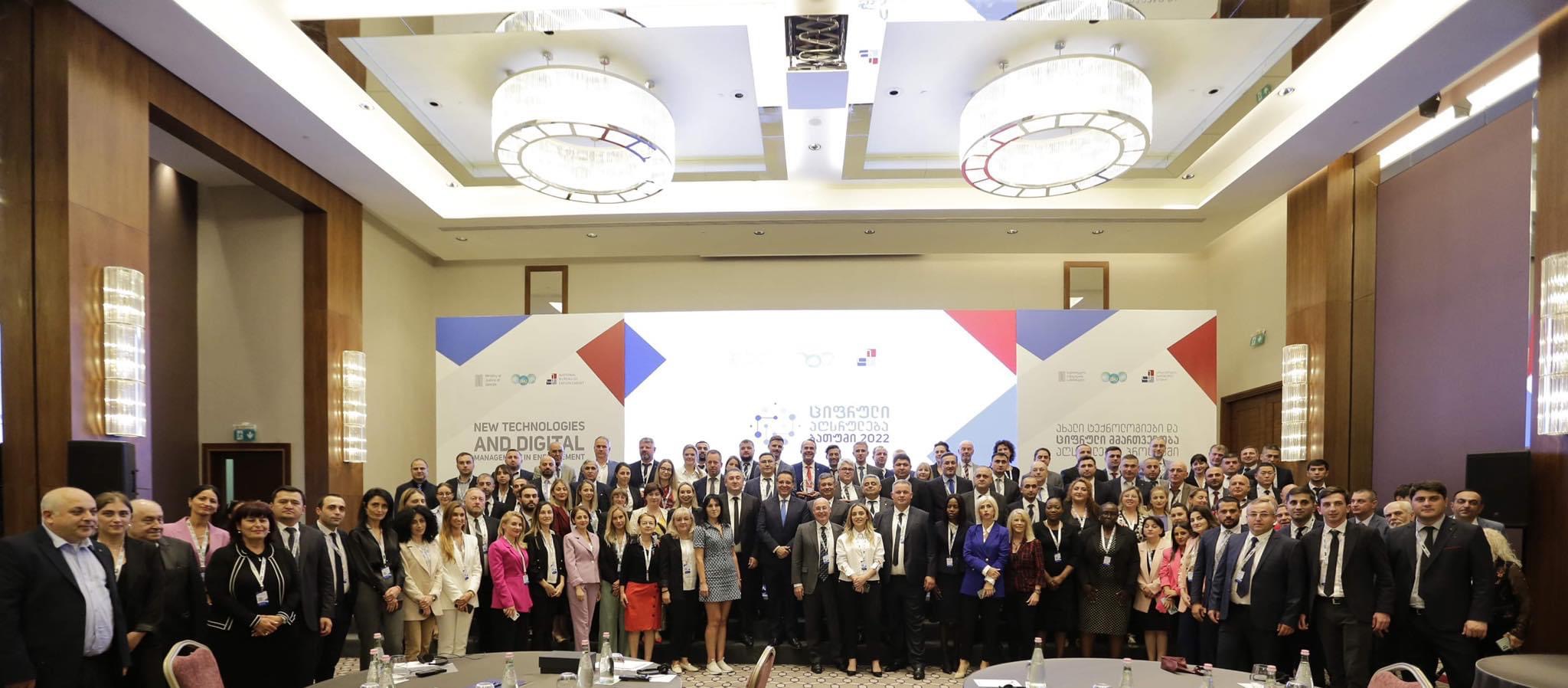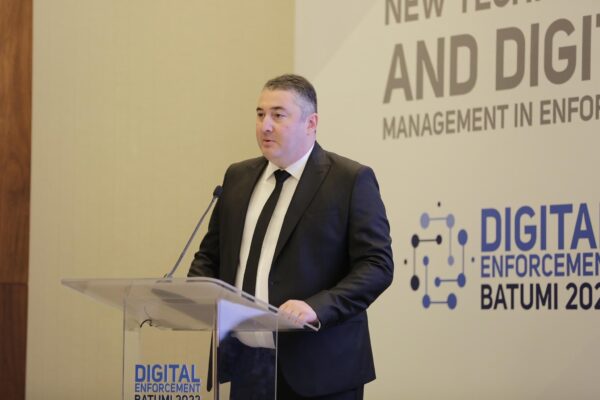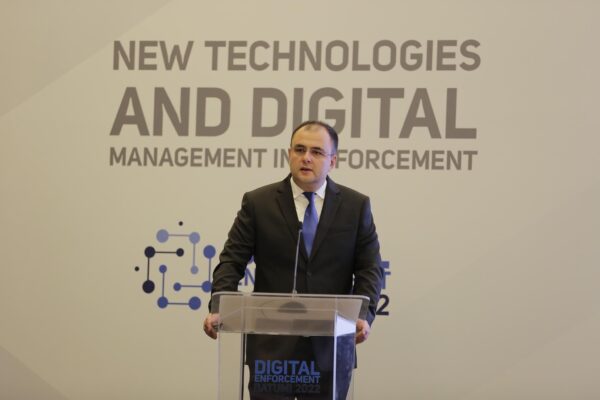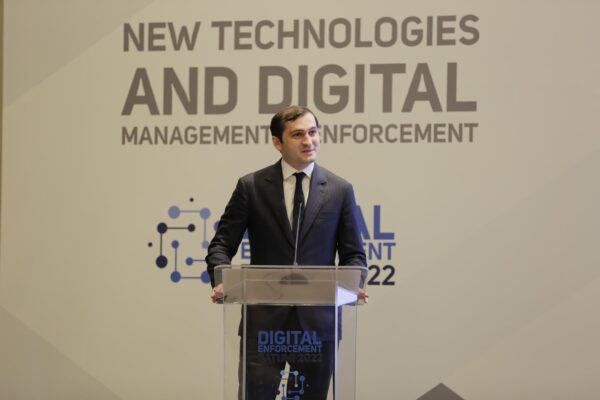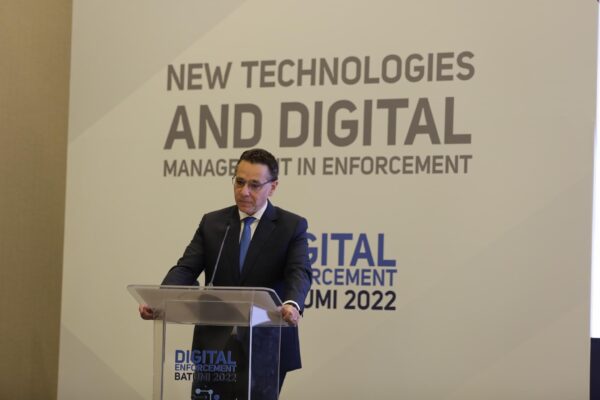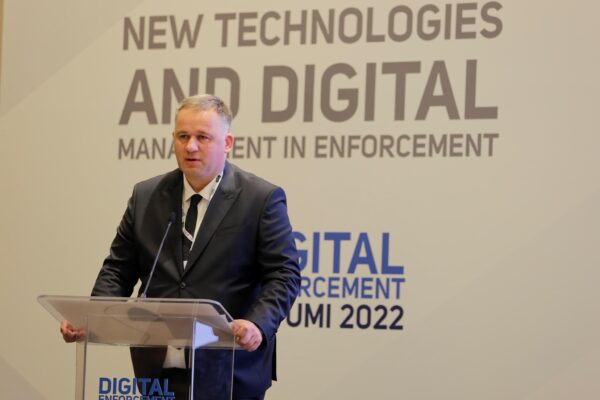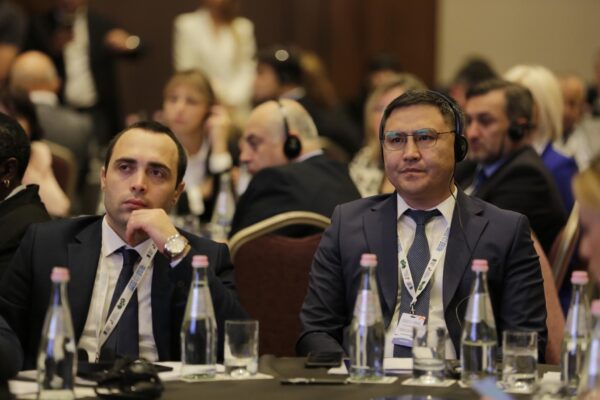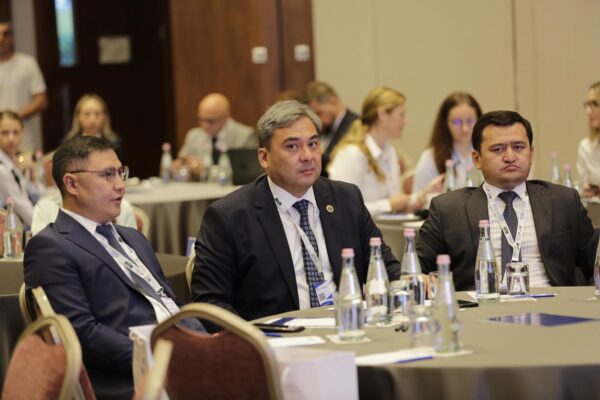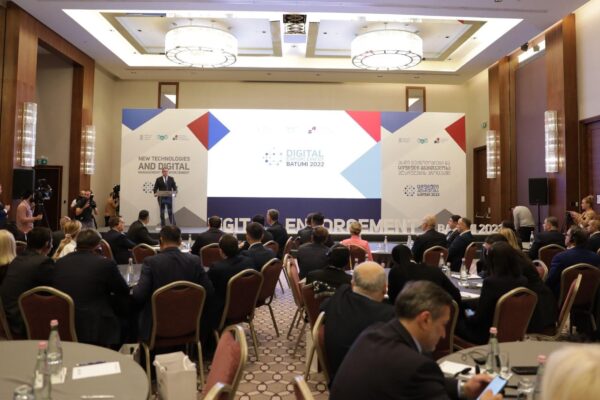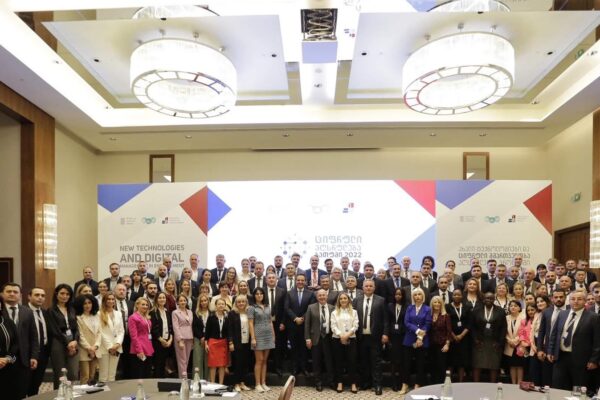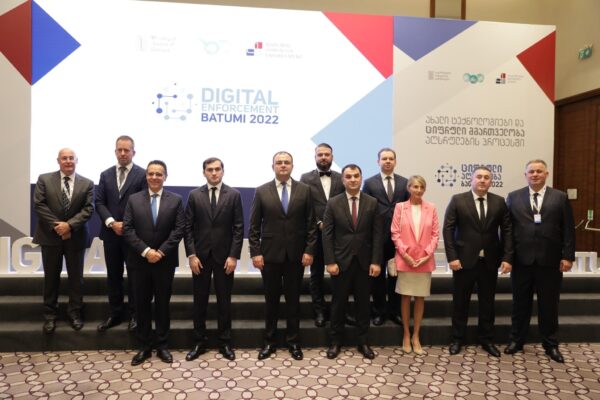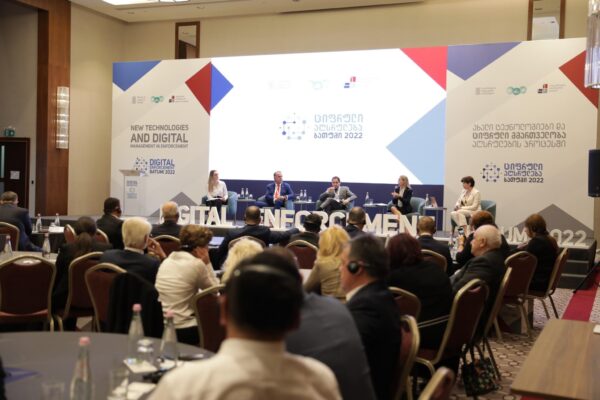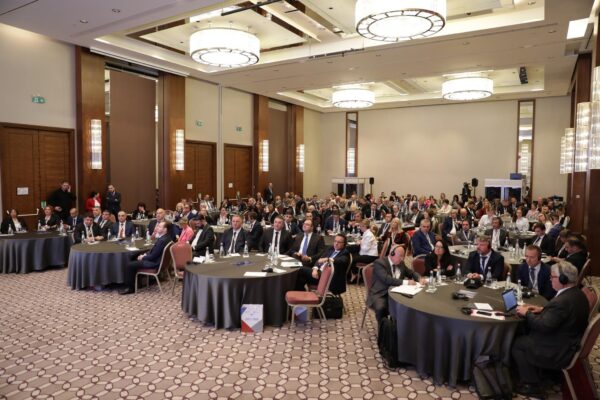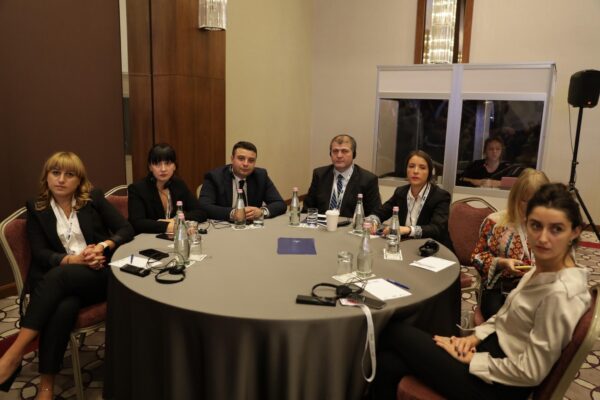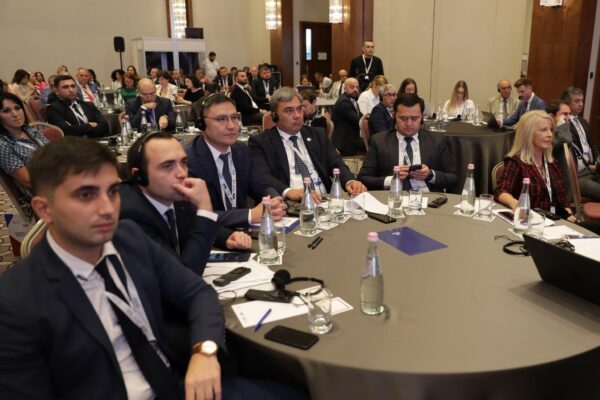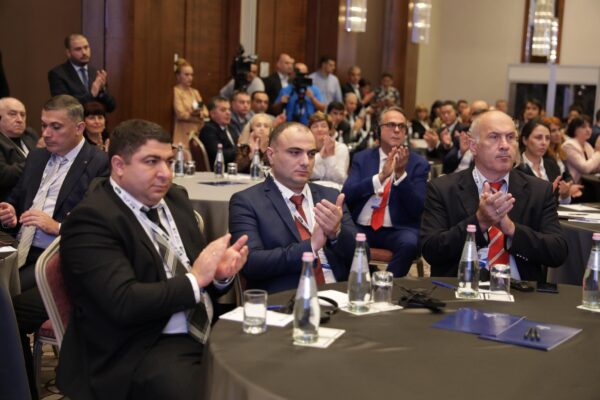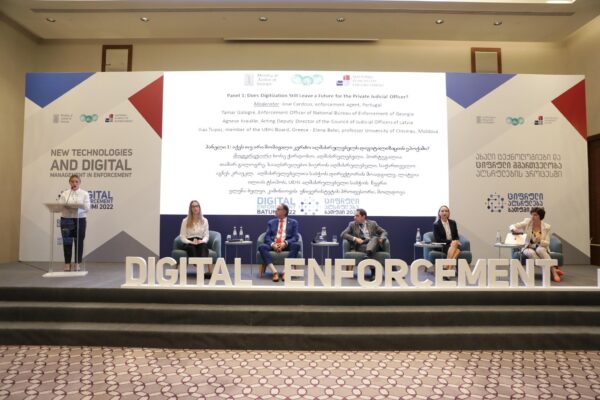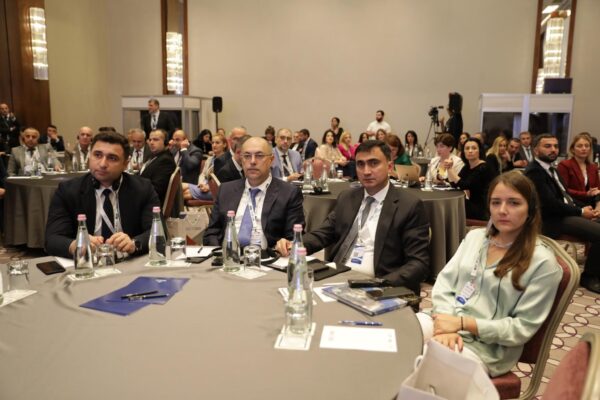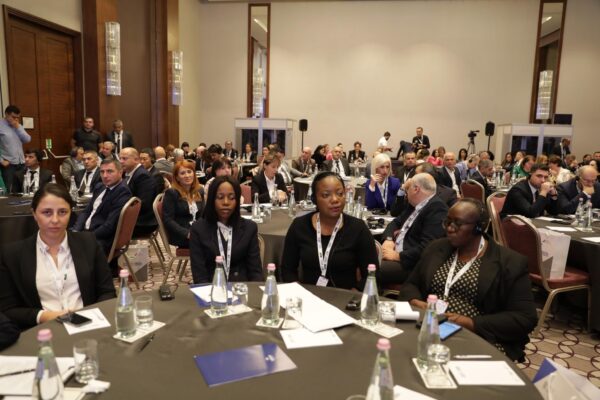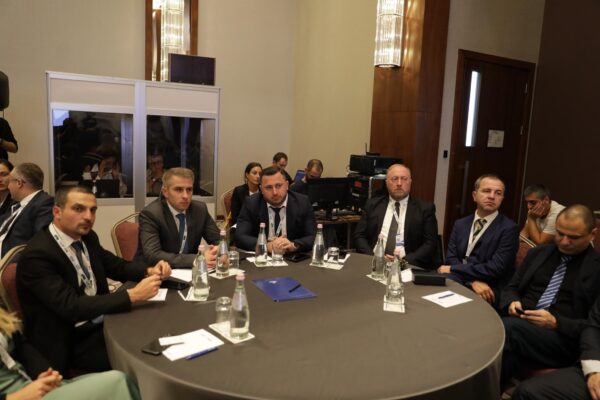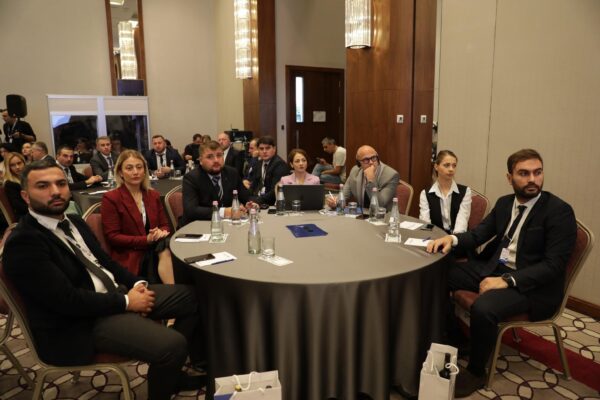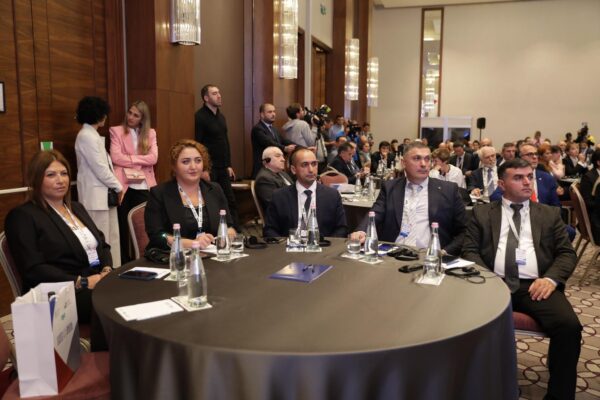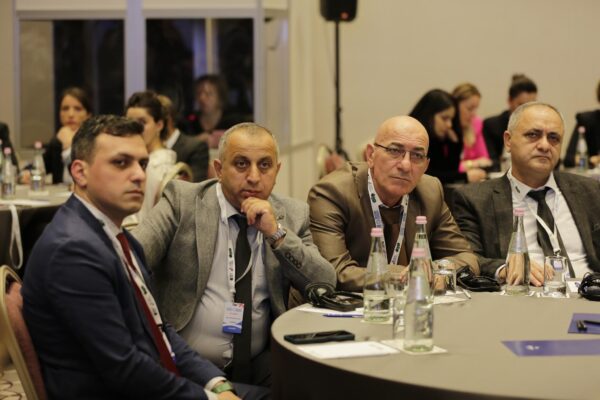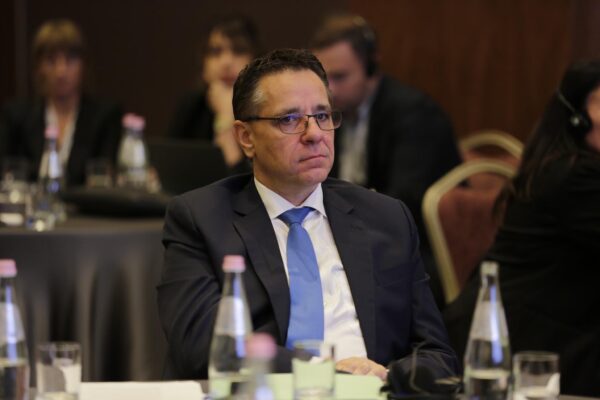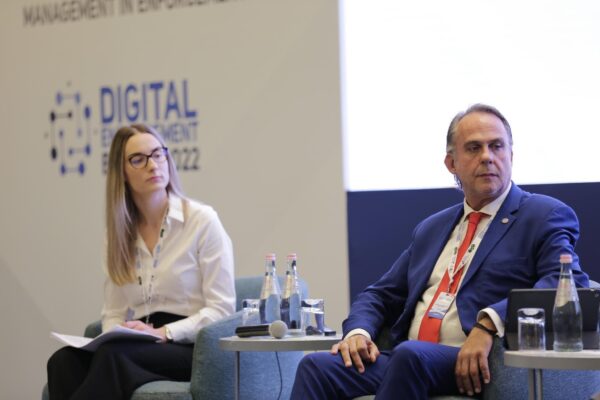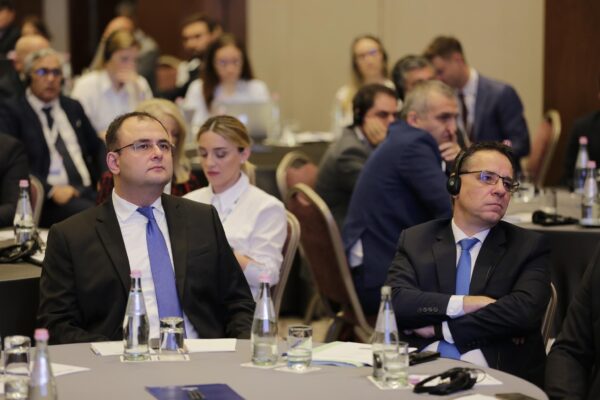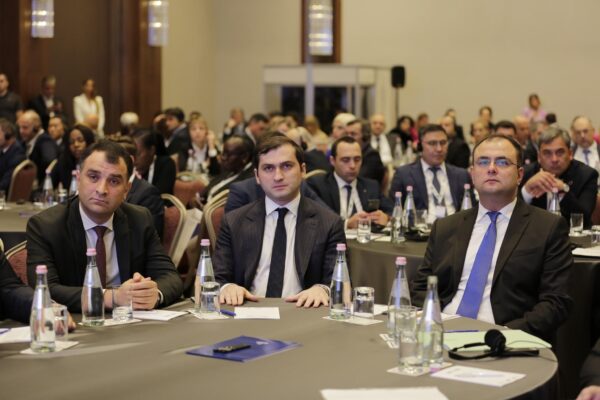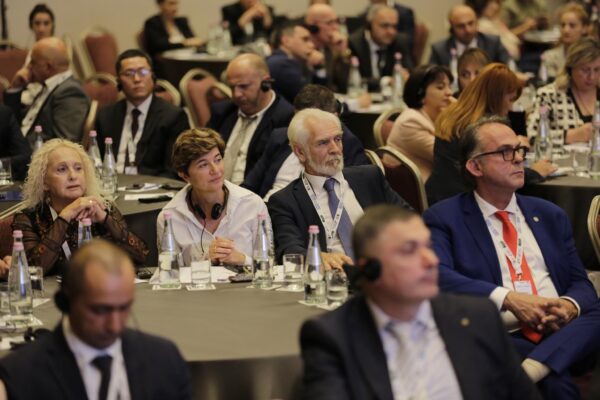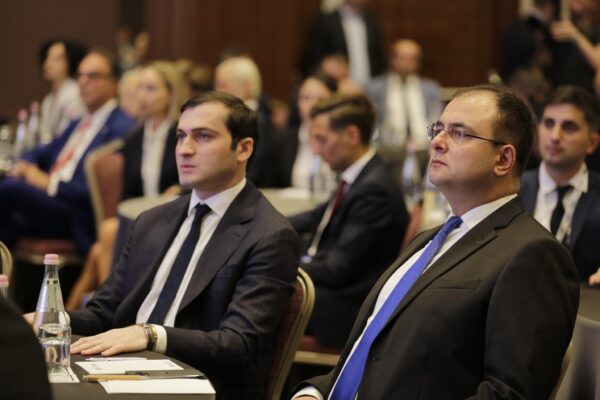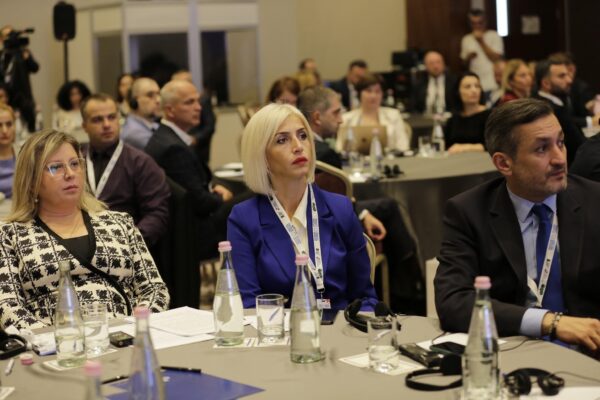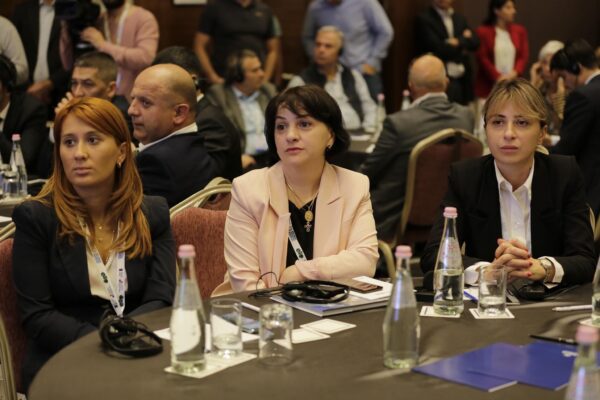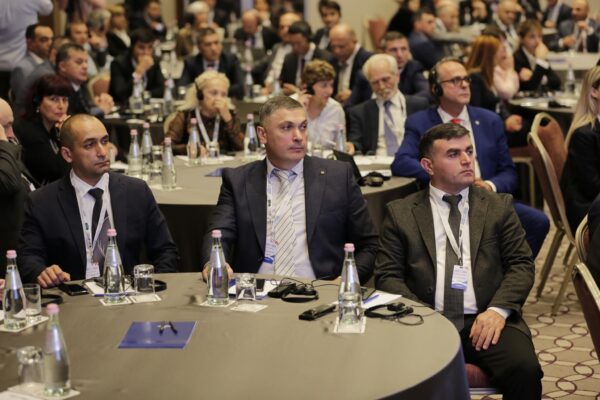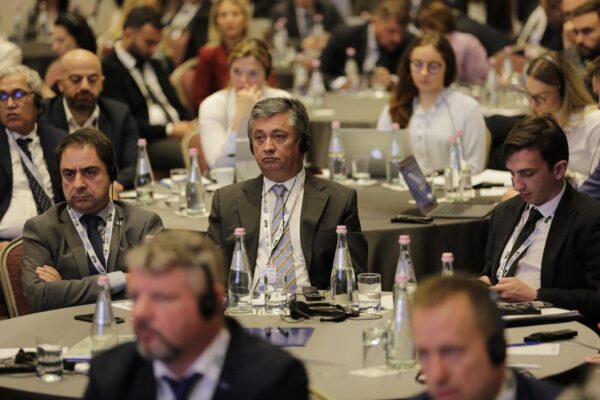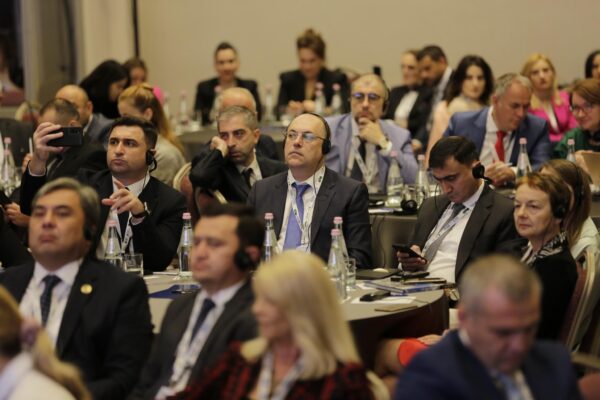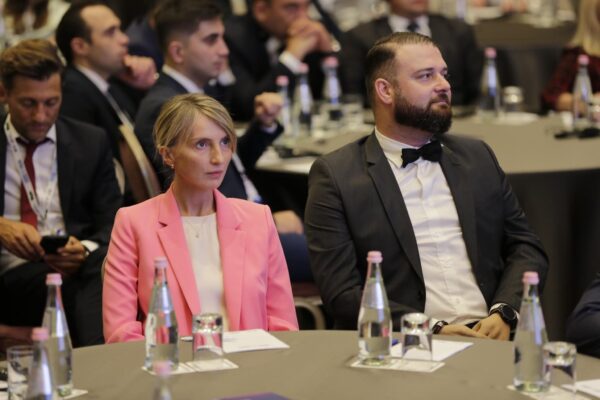The UIHJ organised with the National Bureau of Enforcement of Georgia in Batumi, on 22 September 2022, an international conference on new technologies and digital governance in enforcement.
Representatives of 25 countries from Europe, Asia, America and Africa travelled to attend this conference of high scientific content, perfectly organised. Numerous judicial officers from the National Bureau of Enforcement of Georgia (NBE) were also present.
The UIHJ was represented by Marc Schmitz, President, Jos Uitdehaag, 1st Vice-President, Patrick Gielen, Secretary, David Walker, Vice-Treasurer, Sue Collins, Vice-Secretary, and by Mathieu Chardon, Secretary General. The NBE was represented by its Director, Mirian Kharabadze. Erekle Ghvinianidze, Deputy Minister of Justice of Georgia, former Director of the NBE, and Archil Chikovani, Mayor of Batumi, were also in attendance.
During the opening ceremony, Erekle Ghvinianidze welcomed the participants. He recalled that the Ministry of Justice of Georgia and the NBE have forged very strong relations with the UIHJ for many years, that the model of a global judicial officer advocated by the UIHJ had served as an example in Georgia, which, in addition to the upcoming promulgation of a new Code of Civil Procedure, to the writing of which Jos Uitdehaag had largely contributed, was soon going to set up the profession of liberal judicial officer throughout the country.
After addressing his greetings to all the participants, Rati Bregadze spoke about the creation of Legal Mobile Homes, launched in Batumi, to facilitate access to public services for all, especially those for whom travel is difficult. He thanked the UIHJ “without whose support the conference could not have taken place”. He stressed the importance for Georgia of mastering digital technologies at the service of citizens, in all areas, including justice.
Marc Schmitz expressed his gratitude to the Minister of Justice and to the NBE for hosting the conference, witnessing the excellent collaboration that the UIHJ maintains with them, a collaboration whose beginnings date back to 2000, which developed from 2009 and intensified from 2012, when the NBE became a member of the UIHJ. He mentioned the many European projects in Georgia in which the UIHJ participated. He acknowledged that the NBE had raised the profession of judicial officer to its highest level of technology and efficiency, making it one of the most developed enforcement services in the world. He underlined the importance of the theme of the conference and the place that judicial officers should take in terms of digital technologies. He recalled that the UIHJ had drawn up for this purpose the Global Code of Digital Enforcement, “placing the judicial officer in the centre of digital enforcement as a safeguard of human rights”. This Code contains basic principles that should inspire the national legislators of the different member countries of the UIHJ and thus ensure harmonised legislation right from the beginning at a global level.
Archil Chikovani then welcomed all participants to his beautiful city of Batumi, which has experienced unprecedented development for ten years.
Finally, Mirian Kharabadze expressed his thanks to the Ministry of Justice of Georgia for his presence and unfailing support to the NBE, as well as to the UIHJ, whose privileged relations he praised.
Nino Gogelashvili, head of the Mediation Department of the NBE, presented the state of development of the NBE in terms of digital enforcement, introduced in 2010, and what were its many attributions, in particular in matters of statements of facts, summary proceedings, valuation of property, auction services, insolvency proceedings, or mediation and social work. She also mentioned the forthcoming creation of the profession of private judicial officer throughout the territory of Georgia.
Marc Schmitz recalled that the Global Code of Digital Enforcement was presented in November 2021 during the 24th International Congress of Judicial Officers in Dubai. This code is the continuation of the Global Code of Enforcement created in 2015 during the 22nd International Congress of Judicial Officers in Madrid, Spain. He then proceeded to a detailed presentation of its various components.
The conference was divided into four panels. The first panel concerned the future place of the liberal judicial officer in the digitisation process. It was moderated by José Cardoso, judicial officer (Portugal), member of the Innovation Team of the UIHJ. The panellists were Mrs Tamar Galogre, judicial officer with the NBE, Agnese Kraukle, Deputy Director of the Council of Judicial Officers of Latvia, Ilias Tsipos, judicial officer (Greece), member of the Executive Committee of the European Union of Judicial Officers, and Elena Belei, Professor at the University of Chisinau, Moldova.
The second panel concerned the interactions between digitisation, evidence and enforcement. It was moderated by Mathieu Chardon. The panellists were Giorgi Mouravidze, judicial officer with the NBE, Karolien Dockers, candidate judicial officer (Belgium), Oxana Novicov, Secretary General of the Chamber of judicial officers of Moldova, and Aidos Imanbayev, President of the Chamber of Private Judicial Officers of Kazakhstan.
The third panel focused on the digital organisation of the office of judicial officer: customer contact, field management, functioning, accounting. It was moderated by Tereza Lungova, judicial officer (Czech Republic), member of the Innovation Team of the UIHJ, Natia Ghongadze, private judicial officer (Georgia), David Walker, Olga Yukhymenko, private judicial officer (Ukraine), and Paulo Duarte Pinto, President of the Chamber of Enforcement Solicitadores of Portugal.
The fourth panel looked at recent developments in enforcement and Blockchains. It was moderated by Jonathan van Leeuwen, judicial officer (the Netherlands), member of the Innovation Team of the UIHJ and adviser to the President of the UIHJ, Mrs Nino Lomtatidze, judicial officer with the NBE, Patrick Gielen, Alain Barland, judicial officer (France), and Tomas Tunkl, judicial officer, Head of the Information Technology Commission within the Chamber of Judicial Officers of the Czech Republic.
Conclusions were presented by Jos Uitdehaag.
During the closing ceremony, Marc Schmitz concluded that the conference had clearly demonstrated the need for judicial officers to be at the forefront in terms of technology, while recognising that this technology was of interest only if it was apprehended by judicial officers with regard to all of their activities. He again addressed his thanks to the Minister of Justice of Georgia, as well as to the director of the NBE for the perfect organisation of the conference, and to whom he presented the crystal award of the UIHJ.
Erekle Ghvinianidze in turn thanked all the participants, the UIHJ, the NBE, as well as the foreign delegations. Before closing the conference, he said that digitisation constitued a global challenge and that he felt very satisfied with the level of digitisation already achieved by the NBE.
A sumptuous gala dinner was offered in the evening by the NBE, followed the next day by a visit to the Batumi Public Service House, in which the NBE has its regional headquarters, a model of efficiency and modernity.

